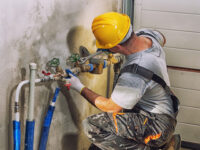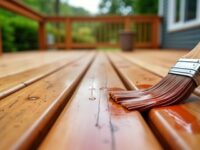What Does a Residential Plumber Do?
Residential plumbing covers a broad spectrum of tasks, from fixing leaky faucets to installing new pipes and water heaters. It also involves unclogging drains and repairing toilets.
The plumbing system in your home is made up of a network of pipes that brings in fresh drinking water and carries away wastewater. It requires regular maintenance and repairs to keep it running smoothly.
A residential plumber installs plumbing systems and fixtures in residential settings. They also perform maintenance and repair tasks related to plumbing issues in a home. These tasks include fixing leaks, adjusting water pressure levels, and clearing clogs. Plumbers may specialize in different areas of residential plumbing, such as sanitary plumbing or gas plumbing.
When installing a new plumbing system in a residence, a residential plumber measures the space for pipes and determines how much tubing is needed to get water from the main line to each fixture. They then connect the pipes, install the faucets and fixtures, and hook up appliances like dishwashers, washing machines, and water heaters. Plumbers also use special tools to cut and measure pipe sections, tubing, and fittings. They often solder and braze these parts together.
Some of the maintenance tasks performed by a residential plumber involve clearing drain lines and inspecting plumbing work. They are often called out to fix problems that occur due to clogged sinks, toilets, and bathtubs. They may also inspect water pressure and flow to ensure that it meets standards. Depending on the severity of the issue, they might need to replace worn-out washers, valves, or fixtures.
Unlike other types of contractors, plumbing professionals typically require licensing. This is because they deal with dangerous chemicals and materials. Plumbers can get licensed by completing a training program and passing an exam. The training and exam requirements vary by state or city. In addition to being licensed, a plumber must carry general liability insurance that covers any property damage they cause while working on a plumbing project.
Plumbing problems can affect anyone, and they usually happen at the most inconvenient times. Leaking or clogged pipes can lead to expensive water bills and damage your home’s walls and ceilings. In the winter, frozen pipes can burst, causing flooding and costly repairs. Whether you have a leaky faucet or a backed-up sewer line, it’s important to find a trusted and experienced technician to resolve the problem quickly and correctly. The best plumbers are licensed, insured, and bonded to provide the highest quality plumbing services.
Repair
A residential plumber repairs everything from dripping faucets to running toilets, leaky pipes, and more. They’re also skilled at fixing clogged drains and sewer stoppages. And they can take care of gas plumbing, ensuring that home boilers and water heaters are working properly.
Because plumbing issues tend to occur in homes all around the country, there are many different types of repair services that a plumber can offer. The type of repair required will also impact the hourly rate a plumber charges. Plumbers with years of experience will usually charge more than less experienced plumbers. Moreover, the complexity of the repair will also impact the cost. For instance, repairing a leaking pipe that runs under a sidewalk will be much cheaper than replacing an entire home plumbing system after a sewer backup.
In addition to repairing common plumbing issues, a residential plumber can also take on more complex jobs that require the use of specialized tools and equipment. For example, a plumber might need to install specialized pipes to handle sewage and waste water in large apartment buildings or condominiums. In this type of job, a plumber will need to have knowledge of piping materials and fittings, as well as be capable of interpreting blueprints and schematics. This is because the pipes must be placed in locations that are accessible, safe, and in compliance with local laws and regulations.
Maintenance
In addition to installing plumbing fixtures, pipes, and appliances, residential plumbers can also perform maintenance on existing ones. This is a great way to keep your home’s plumbing system in good condition and to avoid costly repairs in the future. Some examples of maintenance services include unclogging drains, replacing water heaters, and repairing leaky faucets and toilets. It’s also a good idea to have your home’s plumbing inspected on a regular basis to ensure that everything is functioning correctly and to catch any potential problems before they become serious.
When choosing a plumber, be sure to consider their experience and the types of services they offer. It’s also important to find out whether they charge by the hour or by the job. In general, more experienced plumbers will charge higher rates than newer ones. It’s a good idea to get estimates from several different plumbers before making a decision.
Plumbing is one of the few trades that requires a license to operate. While licensing requirements vary by state, most states require plumbers to pass an exam and have extensive on-the-job training. Many plumbers also carry liability insurance to protect themselves from property damage caused by their work.
While it’s common to assume that any plumber can fix a clogged drain or broken toilet, it’s always best to hire a professional who is trained in the type of plumbing you need. This will help prevent costly mistakes and ensure that your plumbing issues are addressed quickly and properly.
In order to become a licensed plumber, you’ll need a high school diploma or equivalent and complete a four-year apprenticeship program under the supervision of a master plumber. Upon completion of the apprenticeship, you’ll need to pass an examination and earn your plumber’s license. You’ll need to renew your license periodically, and the fees associated with this service will vary by location. Additionally, some plumbers may need to obtain a permit to install or repair plumbing in certain buildings. This process will vary by city, so be sure to check with your local government for more information.
Replacement
Residential plumbers are trained to replace a variety of plumbing fixtures in your home. This includes toilets, garbage disposals, water heaters, and more. You might also hire them to install new showerheads and faucets or to upgrade your entire home’s water system.
If you have a serious problem with your home’s plumbing, it’s important to find the right plumber. Ask family and friends for recommendations, read online reviews, and make sure the plumber is licensed in your state before hiring them.
Commercial plumbing involves more extensive work on large buildings and industrial structures like malls, schools, hospitals, and multi-level offices. Licensed commercial plumbers have more experience working on these larger plumbing systems, which can include complex waste removal systems and connections to water mains and sewer lines.
Finding the right plumber can help you avoid expensive repairs in the future. It’s best to find a plumber who offers regular maintenance services, so they can identify problems before they become major issues. This can save you money on energy bills in the long run as well as prevent expensive plumbing replacements down the road.






